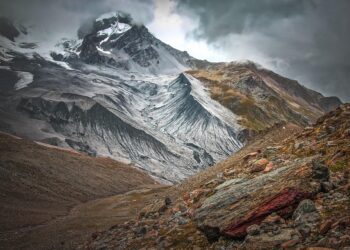Exploration has always been a fundamental part of human nature. From ancient civilizations venturing into unknown territories to modern astronauts exploring the depths of outer space, the desire to discover and learn has driven humanity forward. In the digital age, this spirit of exploration has only been amplified by the advancements in technology that have revolutionized the way we navigate and understand the world around us.
One of the most significant impacts of technology on exploration is the ability to conduct remote exploration. With the advent of drones, robots, and satellites, researchers can now gather information from the most remote and inaccessible areas of the planet without ever setting foot on the ground. This has opened up new possibilities for studying the world’s most extreme environments, from the depths of the ocean to the peaks of the highest mountains.
Furthermore, technology has also played a crucial role in mapping and navigating these uncharted territories. GPS systems, mapping software, and satellite imagery have made it easier than ever for explorers to plot their course and track their progress in real-time. This has not only made exploration safer and more efficient but has also enabled researchers to gather more accurate and detailed data than ever before.
In addition to aiding physical exploration, technology has also transformed the way we conduct scientific research. With the rise of big data and artificial intelligence, researchers can now analyze vast amounts of information and identify patterns and trends that would have been impossible to detect using traditional methods. This has led to groundbreaking discoveries in fields ranging from biology to astronomy, pushing the boundaries of human knowledge further than ever before.
However, as technology continues to advance, it also raises ethical and environmental concerns about the impact of exploration on the natural world. The use of drones and other remote technologies can disrupt ecosystems and wildlife, while the extraction of resources from untouched areas can have lasting consequences on the environment. As we push the boundaries of exploration in the digital age, it is essential that we do so responsibly and ethically, ensuring that our discoveries benefit both humanity and the planet.
Overall, technology has undoubtedly revolutionized exploration in the digital age, expanding our understanding of the world and pushing the limits of human knowledge. From remote exploration to scientific research, technology’s impact on discovery has been profound, opening up new possibilities for exploration and innovation. As we continue to push the boundaries of what is possible, it is essential that we do so with a sense of responsibility and respect for the world we are exploring.








